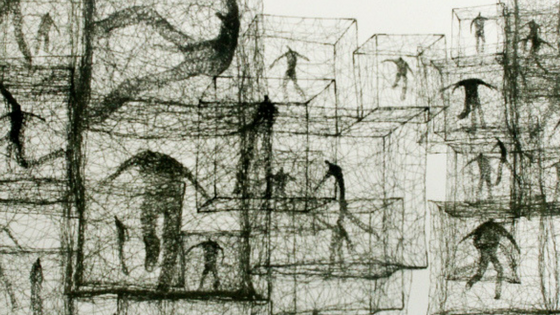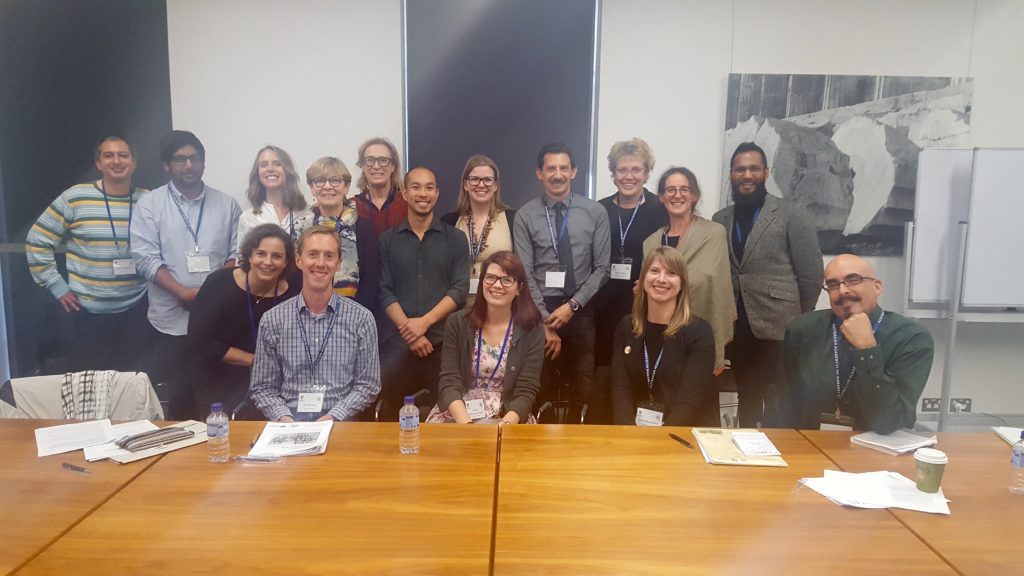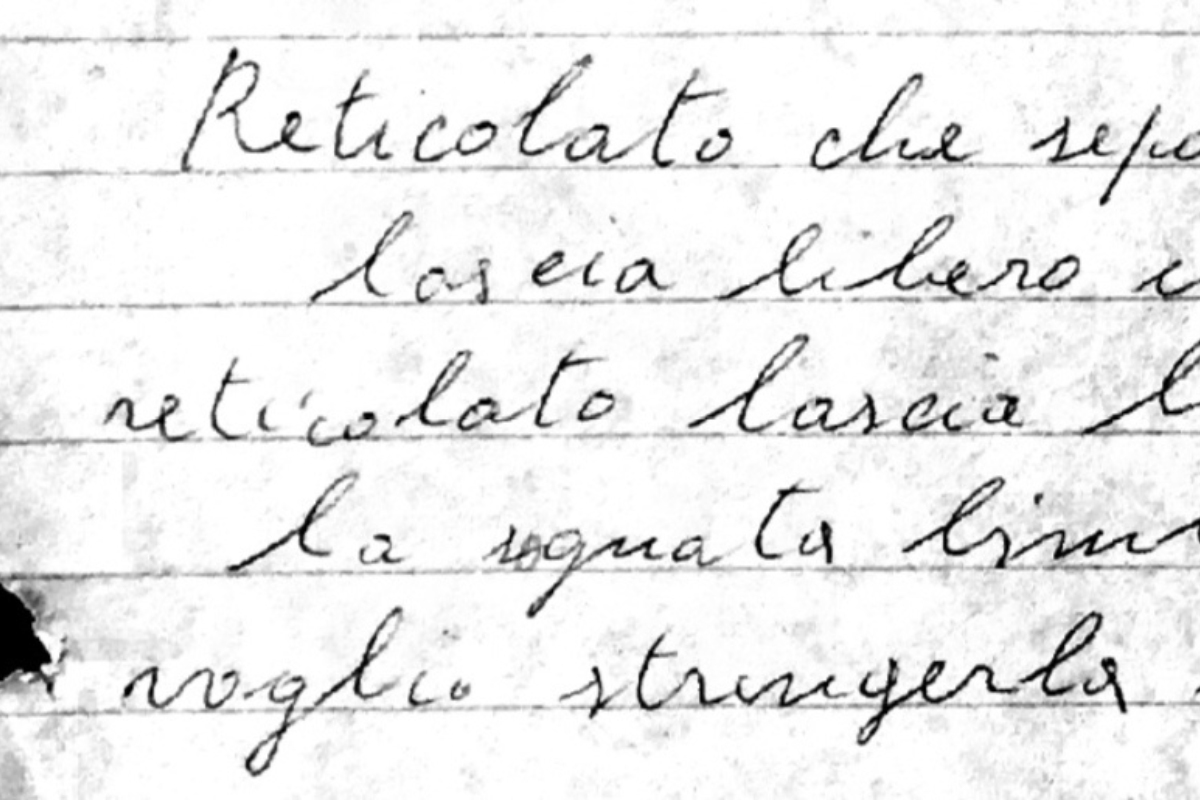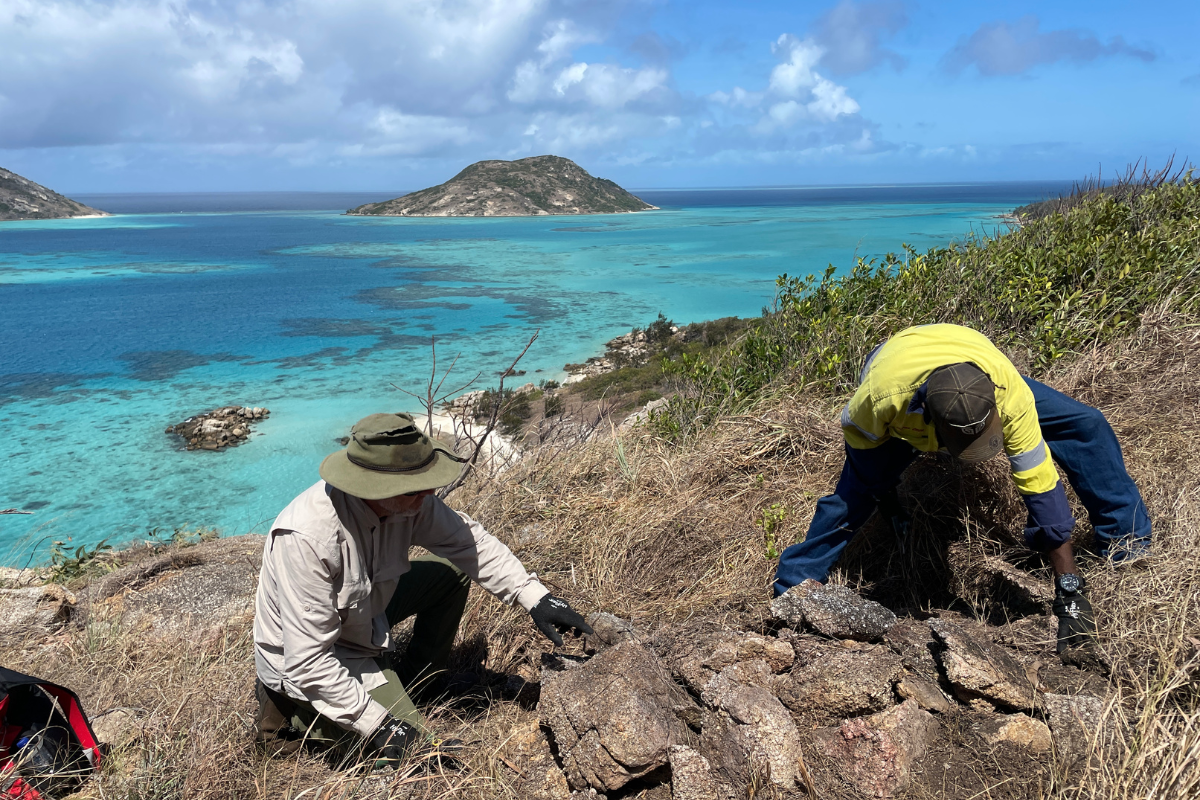
The prevalence of emotive media images for example (such as the recent picture of a child survivor in Aleppo whose face is marked with dust, blood, and shock) captures something important about how we experience politics. Such images make us consider how injustice is felt and experienced, and the role of institutions in creating and sustaining our responses to unjust practices. There is an important link between institutional design, imagination, affect, and ethical and political transformation – something that has not been widely explored in an age where we are more aware than ever of our political present.

We understand an institution to refer broadly to sets of explicit and implicit rules and codes that help to structure our social interactions, and which give rise to normative expectations and patterns of collective behaviour. On this view, just as schools, media, workplaces, and law may be understood as institutions, so too may race and gender.
Our day-long workshop, Institutional Transformation: Imagination, Affect, and Embodiment, held at the University of Sydney on 4th August 2017, sought to explore how different emotions (such as trust, fear, hope, and esteem) might cluster in particular institutional settings to produce both negative and positive social and political behaviour. Uncovering the clusters of affects that influence our social and political practices, and developing a more robust account of possible resources for managing these affects, promises to have significance for policy-makers, social scientists, and social psychologists.

We combined established literature on institutional design with newer research in the field of embodiment and emotion to develop a deeper understanding of how particular social and political practices, as well as institutional initiatives, might harness specific affective states in order to promote responsible individual and collective social and political agency. The importance of this topic becomes clear when we consider, for example, that it is not necessarily disrespect for Indigenous agency that motivates paternalistic and racist policy-making in relation to Indigenous Australians. Feelings of sympathy for Indigenous disadvantage, and a concern among non-Indigenous Australians with maintaining feelings of pride in their national heritage, may also be at play.
The workshop explored how artworks and memorials may help to cultivate ethical, rather than objectifying, forms of compassion and concern for the lived histories and experiences of oppressed and marginalised identities. We considered the potential for grassroots social justice initiatives and social activist movements to disrupt and transform destructive affective investments by creating the conditions for relations of trust and esteem to develop across difference.
The program brought together speakers and participants from various institutions including the University of Melbourne, University, Northwestern University, Cambridge University, the University of Glasgow, the University of Tasmania, and Columbia University and featured a mix of graduate students, postdocs, early- and mid- career researchers, and senior academics from a broad range of disciplines.
Topics treated included:
- The power of art to effect institutional change (for example, the Lynching Memorial in Montgomery, Alabama USA)
- The affective role played by thought experiments in attempts to justify torture (for example, the ‘Ticking Time Bomb’ scenario), and
- The role of social imaginaries in the maintenance of racist policies concerning the capacity for self-governance of indigenous Australians (for example, the Northern Territory intervention).
In addition to these topics, the workshop identified a number of key questions upon which to base further enquiry:
- How have different institutions sought to promote social justice and does this help to build awareness of why and how specific interventions in particular settings succeed? (For example, understanding how a police force utilises a range of implementation strategies for institutional-wide policies directed at changing racial sensibilities that take into account metropolitan, regional and rural differences may provide great insights to others)
- How can we best navigate the relationships between ‘top-down’ and ‘bottom-up’ strategies for change, including the circumstances under which the transformative capacities of ‘grass-roots’ initiatives are enhanced or undermined by top-down interventions?
- What is the role of unsettling emotions in ensuring sustained attention to injustice, and how can we resist premature ‘solutions’ that might be attractive because they allow a movement into more comforting emotions?
This workshop promises to develop a new area of inquiry in the humanities, and to open up exciting opportunities for future research projects and collaborations between scholars across a range of disciplines in the humanities and social sciences.



